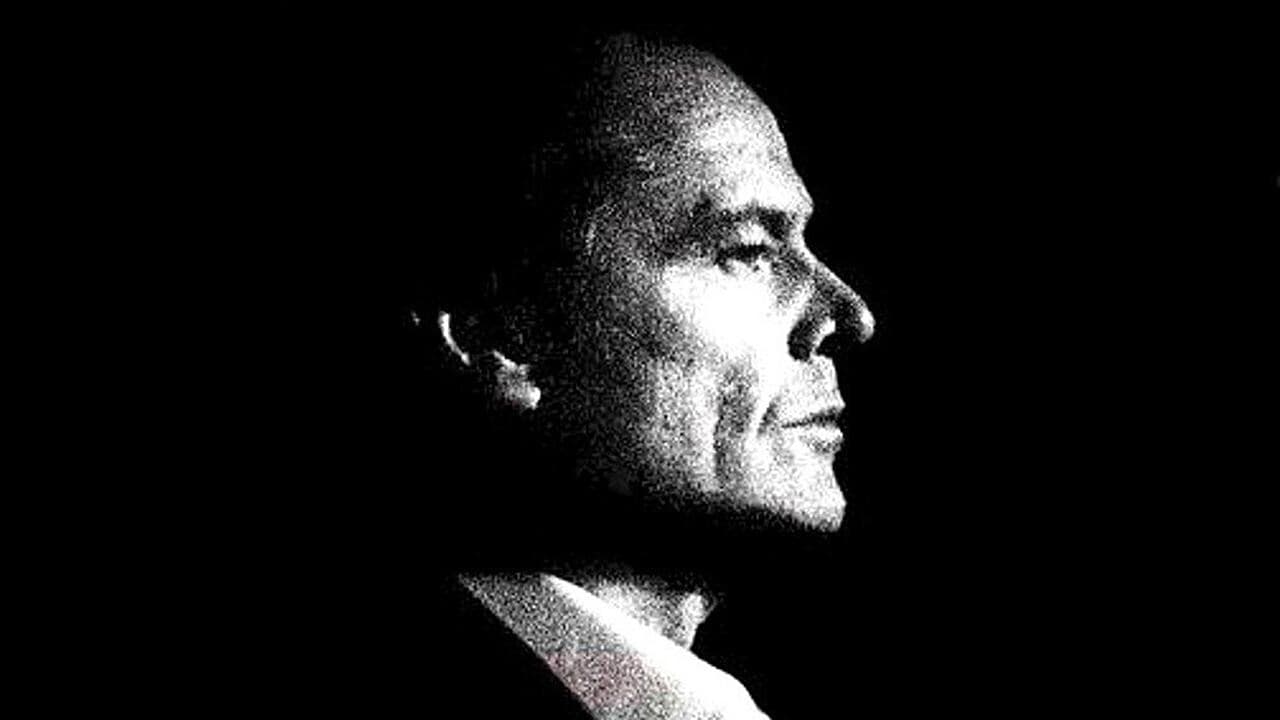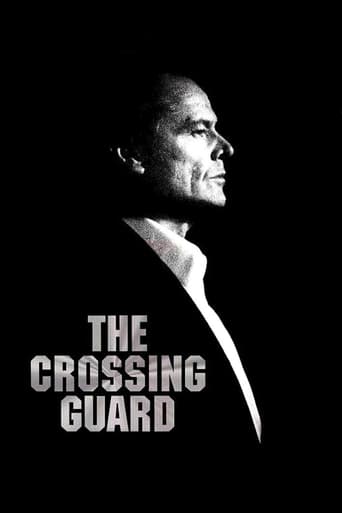adonis98-743-186503
The problem with this movie is not the performances Jack Nicholson is great in whatever you put him in and David Morse is good too but it seems to me that Sean Penn doesn't know what Drama is he has some very good scenes with dramatic values and some others that destroy the whole movie like having Nicholson going to a Strip Club every 30 minutes or even Robin Wright that should help Morse's character instead of dancing like crazy the actors are great but the script and direction haven't been written really that well although it is good to say that the ending was pretty good since both men have done mistakes and they accept them. The Crossing Guard is a beautiful movie that tries a lot to find the drama that it needs threw out it's story but the confusing direction and some pretty bad scenes and dialogue tear apart the movie i give it a 7/10.
Robert Levy (levybob)
Any film featuring Jack Nicholson is worth a look. So too Robin Wright. Add Angelica Huston and how can a film go wrong? And for quite a ways into the film, The Crossing Guard definitely holds the viewer's attention. Nicholson is fine as the grief-stricken father who knows only one way to assuage his grief and that is with violence. David Morse plays against type; there is a softness to his portrayal, a quality I had not seen in his more recent appearances. Robin Wright plays what might be the most interesting of characters, the woman sympathetic to her lover's situation, but unwilling to live with his sorrow.The story, in quite a subtle way, keeps the viewer shifting his / her sympathy between two of the main characters (played by St. Elsewhere's David Morse, and Nicholson); I was never certain about for whom to root. But in the final third of the movie, a definite moral tone takes over; the film became, for me, a message movie. It's earlier edginess is lost.
robertoferrari25
Cannot say enough about this film. Never even knew it existed until it popped up on Netflix and I could not believe a Jack Nicholson film existed that I had not watched at least once. Wife and I watched this at home without interruption and really enjoyed it since we both had recently lost parents, friends and our dog, Scooter. But I never thought a movie could blend such emotion , suspense and action in such a way as "The Crossing Guard". And I admit I am quite a movie snob when it comes to quality movies. Just a great movie all around but you do need to be in the mood for a real actor's movie and not looking for a crash bang thing. I would highly recommend for anyone over 16.
johnnyboyz
The opening to Sean Penn's directorial debut tees up its overall thesis of grief, or the studying of various ways of grieving, with a glimpse into that of a group counselling session driven at this point by a woman speaking of the death of her younger brother. She admits that she feels as if she will never again want to feel affectionate towards a human-being as much as she did her brother, for the fear born out of further loss, in what is a revealing and frank monologue of sorts on the issue. It is an instance in which somebody exposes some deeply rooted emotions out of the death of a loved one, Penn's film, The Crossing Guard, branching out into a fascinating and far broader play on the subject allowing actions and highly strung mindsets to drive a look at anguish, a film covering an array of people of grossly differing ilks suffering in some form due to a fatality; the likes of which are an affecting mediation that doubles up as a somewhat gripping tale of revenge that is never exploitative nor dunderheaded, and indeed remains constantly engrossing to its affecting finale.Penn's film is an engrossing low-key drama observing some rather high-key feelings of consciousness, a film with a creative and personal stamp all over it; principally, a film which looks at those on opposite sides of the death of a young girl at the hands of a drunk-driving incident and revolves a subversive nucleus around a number of sub-plots contributing to an overall thesis. One of these individuals is Jack Nicholson's Freddy Gale; a man, whose daughter is Emily and who was killed in that driving incident five years ago, whom is initially revealed as someone combating whatever grief he experiences by frequenting strip clubs so as to meet with his equally sleazy colleagues and which usually leads to the spending of a night with one of the performers. Freddy is the guy we're inclined towards siding with out of victimisation, but he is, in actual fact, a sleazy and unlikeable individual; with the perpetrator of the death coming across as a little bit more than the faceless, drink driving murderer we're, again, naturally inclined towards labelling as such.It's not as if we feel Freddy doesn't care, indeed he has the anniversary of his daughter's death vehemently stencilled in on his calender; while his clinicalness is exemplified in his dealing with a minute employee issue early on at his jewellers in an effective and shrewed manner. Freddy's lifestyle acts as something to sooth the pain, since his ex-wife, in Anjelica Huston's Mary, is seen during that opening therapy session born out of Emily's death; Penn cutting back and forth from such sequences at such places juxtaposing the content and alluding to a harsh duality in dealing with grief. The turntable which will unsettle the balance in each of these people's lives arrives in the form of David Morse's John Booth, the man who was responsible for Emily's death and is now out of prison after his stretch for it. You always feel that a genre piece would demand a man of such a nature be collected by a former criminal cohort or something in the region of; here, Booth is picked up by his parents, and he appears humble enough - speaking of the problems he experienced whilst incarcerated and appearing to have a good rapport with his folks. Indeed, his parents seem like gentle folk and still connect with each other at the age they're at, a far cry from Freddy and Mary on the other strand who're a lot younger but much further apart.Freddy, blinded by some vengeful rage, as well as the seemingly still prominent escalating need to prove his masculinity following the decimation of his marriage, and after so much time spent with women and in those specific locales with other men, tracks Booth with the intent to kill him. The men reach a compromise that sees Booth suggest he come back to his trailer-home in three days time to challenge him if he still wants blood to be spilt. Interestingly, this causes Freddy to go home and make an even larger stencil mark on his calender than that of the anniversary's date; an alluding to the hierarchical element to which date, as well as the actions predestined to be either acknowledged or carried out on such dates, acts as more important to him. Penn's film is one of a revenge ilk in which a lead reckons to grab the nearest firearm and hulk out to get some revenge so as to compensate for a lost or taken loved one; its substance in identifying that as a premise commonly used to drive such films as Commando or Rambo III, and allowing that respective denouement to occur in the first third, crucial to permitting the involved parties to play out what is from there on in an engrossing mediation on revenge; grief and guilt which ought not slip beneath one's radar.

